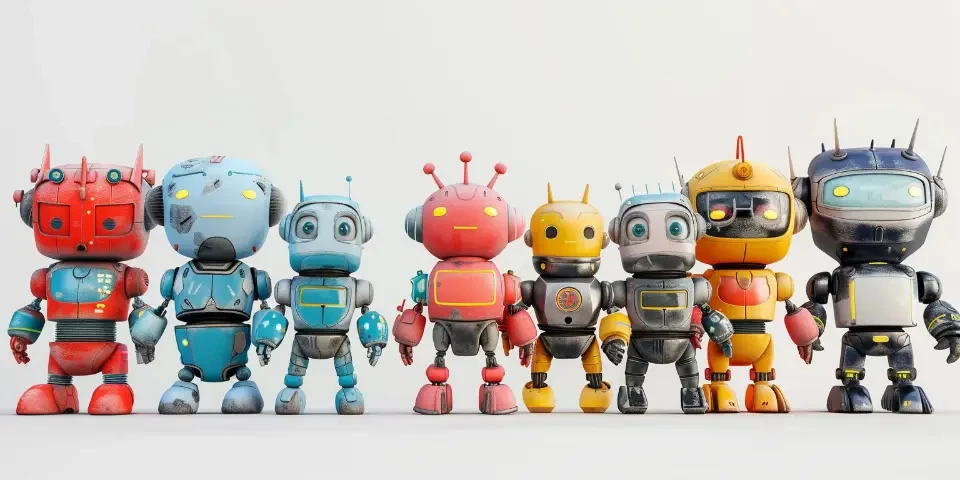Connecting People, Empowering Minds Exploring the Potential of AI in Social Networking
Technology has revolutionized the way we connect with others and share our thoughts and ideas. Social networking platforms have played a pivotal role in bringing people together, but with the advancement of Artificial Intelligence (AI), these platforms are set to undergo a transformative change. AI has the potential to enhance our social networking experience, empower our minds, and bring about a new era of connection and collaboration.
1. Personalized Content and Recommendations
AI algorithms can analyze user data and preferences to provide personalized content and recommendations. Whether it's suggesting relevant articles, videos, or connections, AI can ensure that our social media feeds are tailored to our interests and needs. This not only saves time for users but also promotes the discovery of new ideas and perspectives.

This AI-powered personalization can be seen in popular apps like Facebook and Twitter. These platforms analyze user engagement patterns, post interactions, and content preferences to curate a unique feed for each individual. This level of personalization fosters a more engaging and meaningful social networking experience.
2. Advanced Chatbots for Customer Support
AI-powered chatbots are becoming increasingly popular in social networking platforms, providing efficient and round-the-clock customer support. These chatbots can handle a variety of user inquiries and offer quick solutions, reducing the burden on human customer support agents. With the ability to learn from each interaction, chatbots can continually improve their responses and provide better assistance over time.
Chatbots like those used in Messenger or WhatsApp offer instant support, answering common questions, and even aiding in making reservations or purchases. Their tireless availability and quick response times ensure users have a seamless experience on these platforms.
3. Enhanced Security and Privacy
AI can bolster the security and privacy of social networking platforms. By analyzing patterns and trends, AI algorithms can swiftly identify and act upon potential security breaches, suspicious activities, or malicious content. AI-powered algorithms can monitor user behavior and communication to detect and prevent harassment, hate speech, and fake accounts.
Facebook uses AI algorithms to scan and detect potentially harmful or abusive content. These systems not only help in safeguarding user experience but also reinforce a sense of trust and security within the platform.
4. Intelligent Content Moderation
Content moderation is a significant challenge for social networking platforms, as millions of posts are shared every minute. AI can assist in automating content moderation by instantly flagging and removing inappropriate or offensive content. Natural Language Processing (NLP) algorithms can analyze the context and sentiment of text-based content, ensuring a safer online environment.
YouTube uses AI to automatically detect and remove copyrighted material or content that violates its community guidelines. Although there are occasional false positives, AI systems continue to evolve and improve, aiding platforms in maintaining high content standards.
5. Reinventing Collaboration and Knowledge Sharing
AI holds the potential to redefine collaboration and knowledge sharing among users. Platforms can utilize AI algorithms to connect users based on their expertise, interests, and professional backgrounds, fostering meaningful connections and collaborations. This enables users to find like-minded individuals or experts in their respective fields, promoting the exchange of knowledge and ideas.
LinkedIn, for instance, uses AI algorithms to suggest relevant connections and job opportunities based on user profile information and interactions. The AI-powered recommendation system amplifies professional networking opportunities, providing a space for career growth and development.
6. Enhancing Accessibility and Inclusivity
AI can play a significant role in making social networking platforms more accessible and inclusive. By leveraging speech recognition and natural language processing, AI-powered tools can assist individuals with disabilities in interacting with these platforms. Voice-controlled interfaces and text-to-speech features can ensure equal and inclusive participation for all users.
Facebook has incorporated AI-powered image recognition and automatic alt-text generation to describe images for visually impaired users. This innovation enhances the accessibility of visual content on the platform, making it more inclusive for everyone.
7. Personalized Advertising
AI-powered social networking platforms can deliver personalized advertising campaigns, making ads more relevant and targeted to users. By analyzing user preferences, behaviors, and demographics, AI algorithms can ensure that ads are tailored to individual interests, increasing the chances of user engagement and conversions.
Platforms like Instagram and Twitter use AI algorithms to analyze user interactions and behavior, delivering tailored advertisements based on their interests and preferences. This personalized approach to advertising benefits both users and advertisers, providing a more engaging and effective marketing experience.
FAQs:
1. Is AI in social networking a privacy concern?
Privacy concerns arise when it comes to AI analyzing user data. However, platforms should be transparent about data collection and establish strong privacy policies. User consent and control over data should be prioritized to mitigate privacy concerns effectively.
2. Can AI completely replace human customer support agents?
While AI-powered chatbots efficiently handle routine inquiries, human support agents are essential for complex and personalized assistance. The combination of AI and human support ensures a seamless customer experience and effective issue resolution.
3. How can AI enhance collaboration between users?
AI algorithms can analyze user profiles and interactions to suggest relevant connections and collaboration opportunities. By connecting individuals with shared interests or complementary expertise, AI promotes fruitful collaborations and knowledge sharing.
References:
1. Zuckerberg, M. (2021). Building New Social Experiences with ML. Facebook AI Blog.]
2. LinkedIn Engineering. (2020). How LinkedIn Uses AI in Social Networking. LinkedIn Engineering Blog.]
3. O'Connor, B., & Kelleher, J. D. (2019). Deep Learning and Natural Language Processing. Data Mining and Knowledge Discovery Handbook, 1273?308.
Explore your companion in WeMate